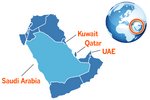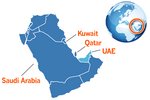Saudi FAQ: Benefits, Housing, Healthcare and Pay
 How long are the employment contracts?Contracts are typically 1- or 2-years in duration and are renewable on-site. Can I bring my family?This varies by hospital. At some hospitals, only senior administrative staff (e.g., Director/Head of a Clinical or Non-Clinical Department) and physician contracts provide married-status contracts, which offer family members accommodations, travel, and health benefits. At other hospitals, married-status contracts may be available from the Assistant Manager level or higher. With a married-status contract, the number of dependents covered varies by hospital and level of position. On a single-status contract, accommodations, air tickets, and medical coverage are provided for the employee only. Can I bring a pet?People on single-status contracts who are in shared accommodations cannot bring any pets. People on married-status contracts who are not in shared housing may be able to bring a pet, depending on the rules of the housing complex, and depending on the type of animal, but the couple would be responsible for all expenses and arrangements for its transportation to Saudi Arabia and any damages the pet may cause. See our article for more information. Where will I live?Most expatriate staff live in housing on the hospital grounds, or in a private housing complex (commonly called a "compound"). A compound is an area of private property that is similar to a gated community. The sizes of compounds vary. Some will have only the residential facilities, while others will have pools, fitness facilities, tennis courts, salons, and grocery stores. Like a gated community, you're free to come and go as you please (bear in mind, however, that some compounds have late-night curfews). People leave the compound to work, shop, visit friends who live on other compounds, attend cultural events (e.g., concerts at embassies), dine out, go sightseeing, etc. What is provided in my apartment/house?Cutlery, dishes, pots, pans, a kettle, and toaster come with the apartment, as do basic appliances such as a fridge and stove. Depending on your accommodations, washers and dryers are either in the individual apartment unit or in a communal laundry room (there is no charge). Utilities are included, and basic TV channels are included. If you want more channels you can purchase satellite packages that include stations such as ESPN, CNN, BBC, the Movie Channel, etc. Long distance phone calls are not included. Many people view online or download their favourite shows via networks or other services. Do I have to share my apartment/house?Physicians and most senior administrative positions are entitled to non-shared housing. All other contracts usually receive shared accommodations, with one or (rarely) two other housemates. How much vacation am I entitled to?Vacations are commonly calculated as "calendar days." Depending on the employer, you will usually have between 40 and 58 calendar days of vacation per year (e.g., April 1st to 14th is considered to be 14 calendar days of vacation). When will I be able to take a vacation, and for how long can I go away?You will not be able to take vacation for the first three months of your contract, as this is your probationary period. After this time, you will be able to make vacation arrangements with your supervisors at the hospital, as you would in any workplace. Helen Ziegler and Associates, Inc. cannot guarantee you vacation time for any particular dates, or for any length of time. Can I leave the Kingdom on vacation whenever I want?While you are waiting to receive your residency permit (igama), which usually takes between 2 and 4 weeks (but can sometimes take months), you may not leave the country. Also, the first three months of employment is a probationary period, during which you will not be able to take any accrued leave/vacation days. After you obtain your residency permit (igama), you will be able to leave and re-enter the country for a short trip that doesn't use leave days, e.g., for a weekend trip the UAE. You will need an exit/re-entry visa to come and go; these can be purchased individually or as a multiple. What kind of healthcare coverage am I entitled to?The hospital will provide any medical treatment and emergency dental procedures you require. In most cases, you will not be covered for basic dental care. Also, if you leave the city to go on vacation or for a day trip, you will not be covered for any medical treatment. Thus, it is a good idea to purchase travel health insurance, when you leave the city in which you are employed, even if it is to travel within Saudi Arabia. I take prescription medication. Can I get it there, or should I bring it with me?You can get prescription medication in Saudi Arabia (which is covered by your health coverage), but you may not be able to get a specific brand name. You can ask in advance if the brand is available. Or, if you prefer a specific brand, you may bring a supply that will last you several months. Please bring prescriptions in the original container. The label must clearly state your name and the name of the medication (this is especially important when you are carrying medication on the airplane). Who pays for my flight?Relocation and repatriation airfare are typically provided by the employer. Helen Ziegler and Associates, Inc., works with the hospital to arrange your flight from your point-of-hire to the city where you will be working. If I book my own flight, will the hospital pay me back for it?No. Nor, for logistical reasons, can the hospital honor requests to fly specific airlines, or accommodate requests for additional or extended stops on your way to Saudi Arabia. What does "tax-free income" mean?There is no income tax deducted in Saudi Arabia. However, your foreign income may be taxed in your home country:
What is the currency in Saudi Arabia?The currency in Saudi Arabia is the Saudi Riyal (also spelled Rial), commonly referred to as the "SR." The SR has been fixed at a stable rate to the US dollar since the early 1980s, with the rate being: US$1 = SR3.75. How am I paid?You are paid monthly, in Saudi Riyals, by direct deposit into a local bank, located either on the hospital site or within easy walking distance. How easy is it to open a bank account?The hospital will help you open a bank account soon after you arrive and after your Igama (permanent residency visa) has been issued. While safe, money in this account, will not earn interest, so you should transfer your money to an account outside Saudi Arabia to earn interest. (Islamic law prohibits earning interest on money; Islamic banking, however, provides another method for making your money work for you without violating Islamic law.) What should I do with my money then?Since no interest is paid on accounts in Saudi Arabia, most people keep only basic spending money in their Saudi bank account. Instead, people transfer most of their savings to offshore accounts through e-transfers, wire transfers, bank drafts, or whatever is possible through one's home bank. Internet banking is common. Can I use credit cards in Saudi Arabia?Saudi Arabia is generally a cash society, but credit cards are accepted in major department stores, chain hotels, and major hotel restaurants. Generally, other outdoor souks do not accept credit cards. Occasionally machines have trouble with "chip cards." Most Popular |
Related |
Copyright (C) 2025 Helen Ziegler and Associates. All rights reserved.



